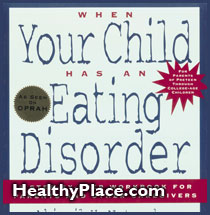Treating Eating Disorder Patients Against Their Will -- Does it Work?
People with eating disorders often refuse treatment for many reasons including fear of weight gain and the stigma of being hospitalized. But if eating disorders go untreated, they can have serious medical consequences -- death being one of them.
If an adult refuses treatment for a life-threatening illness, he or she can be legally required to enter a treatment program. But involuntary treatment of eating disorders, including anorexia nervosa and bulimia nervosa, is controversial, mostly because some experts suggest that it is counterproductive if the patient isn't willing to cooperate.
Now new research suggests that such involuntary treatment may be just as effective as voluntary treatment -- at least in the short run. The findings appear in the November issue of the American Journal of Psychiatry.
Of nearly 400 patients admitted to an eating disorders program during a seven-year period, the 66 patients who were involuntarily committed were hospitalized for an average of more than two weeks longer than the voluntary patients, mostly because they were in worse shape and weighed less. However, both groups gained weight at the same rate on a weekly basis.
The study did not assess how patients did in the long term, but a new study is now under way looking at how such patients fare five to 20 years after treatment.
"The short-term response of the legally committed patients was just as good as the response of the patients admitted for voluntary treatment," concludes Tureka L. Watson, MS, a psychiatry researcher the University of Iowa in Iowa City, and colleagues. "Further, the majority of those involuntarily treated later affirmed the necessity of their treatment and showed goodwill toward the treatment process."
Craig Johnson, PhD, says that he has no difficulty admitting adolescents, or even adults, involuntarily if they have had previous intensive treatment. "If their anorexia is severe ... their ability to think clearly is compromised, and they don't have the skills to make good judgments." Johnson is the director of the eating disorder program at the Laureate Clinic and Hospital in Tulsa, Okla.
In these cases, one should intervene as aggressively as possible, he says. "The courts, of course, view this differently ... they are far less prepared to commit people over not eating," he adds.
"There is tremendous resistance even in people who are ... eager to get better," says Abigail H. Natenshon, an eating disorder psychotherapist in private practice in Highland Park, Ill., and founder and director of Eating Disorder Specialists of Illinois.
 "In a sense, the eating disorder makes them feel better than being healed because the eating disorder gives them a sense of control and power over their lives," says Natensohn, author of When Your Child Has an Eating Disorder: A Step-by-Step Workbook for Parents and Other Caregivers.
"In a sense, the eating disorder makes them feel better than being healed because the eating disorder gives them a sense of control and power over their lives," says Natensohn, author of When Your Child Has an Eating Disorder: A Step-by-Step Workbook for Parents and Other Caregivers.
Even a patient who voluntarily gets treatment is afraid to give up this disease, she says. Some may be afraid that they will lose control over all of their life if they gain weight and/or get better.
But the first step in any eating disorder recovery is to get the patient's weight back into the healthy range, she says "Even medications will not have an effect on a person who is malnourished because their brain is malnourished and their perceptions are distorted," she says.
A hospital will force feed if it has to, Natenshon says. "Once hospitalized, a patient has no choice but to restore enough body weight so they are no longer in danger of dying." She explains that because patients are being fed, they eventually become more accepting of treatment willing patients.
About 10 million adolescent females and one million males struggle with eating disorders and conditions that border on eating disorders, according to Eating Disorders Awareness and Prevention Inc. of Seattle.
next: Eating Disorders Conference Transcripts Toc
~ eating disorders library
~ all articles on eating disorders
APA Reference
Staff, H.
(2008, November 27). Treating Eating Disorder Patients Against Their Will -- Does it Work?, HealthyPlace. Retrieved
on 2026, January 19 from https://www.healthyplace.com/eating-disorders/articles/treating-eating-disorder-patients-against-their-will-does-it-work


